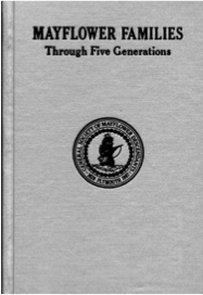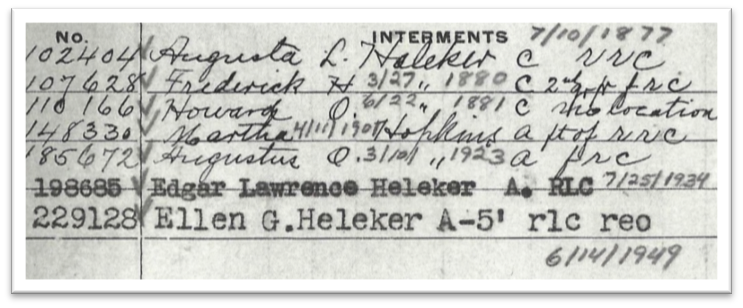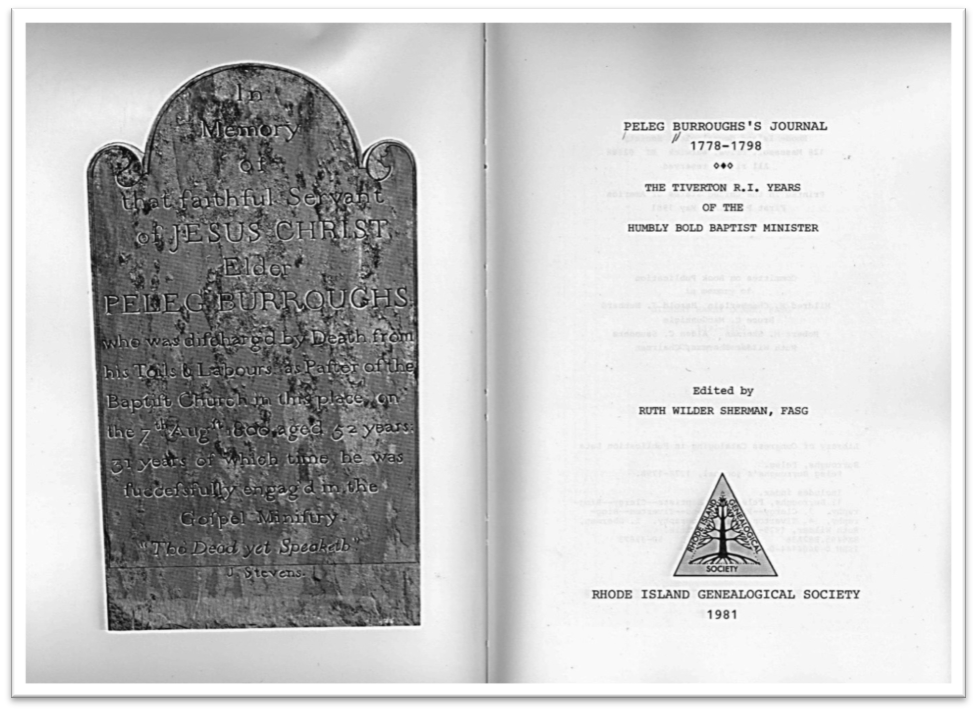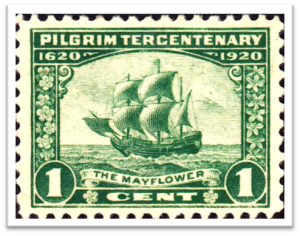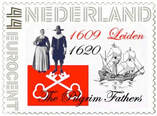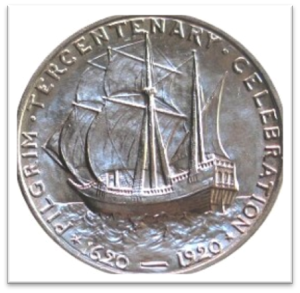MEMBERSHIP – DOCUMENTATION
The purpose of the application form is to prove, beyond a doubt, that you are connected by blood to a person who arrived on these shores on the good ship Mayflower in December 1620. The direct line of descent must be proved through every generation. That is, proof that each ancestor is the child of the preceding generation is absolutely necessary. (To illustrate – two or more individuals in a given town might have the same name. In that case, you must be able to document that your ancestor, Thomas Smith, was the son of the particular John Smith who, it has been proven, had an ancestor who was a passenger on the Mayflower.)
You may be applying for membership based on a lineage that has been previously approved. Certification standards for the Mayflower Society are continually being strengthened. Therefore, some applications approved in years past may require additional documents. Any proofs not provided for a previously-approved lineage must be included with your application for that very same line of descent to be approved again. (If you already have your relative’s application, please send a copy to the DE Historian.)
You may be applying for membership based on a lineage that has been previously approved. Certification standards for the Mayflower Society are continually being strengthened. Therefore, some applications approved in years past may require additional documents. Any proofs not provided for a previously-approved lineage must be included with your application for that very same line of descent to be approved again. (If you already have your relative’s application, please send a copy to the DE Historian.)
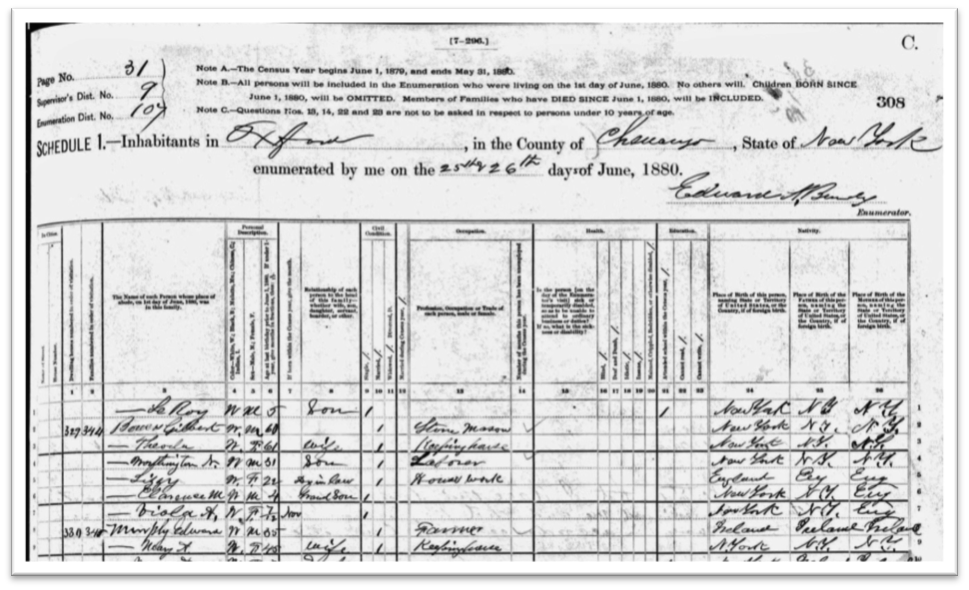
Census records can be very helpful in establishing proof. The 1880 is the first federal census that gives family relationships. However, line of descent can be established by a pattern of appearance of named individuals. The 1900 FC is particularly valuable as it gives month and year of birth and year of marriage.
You must make every effort to provide documentation for every birth, death, and marriage unless you know primary-source materials were provided on a previously-approved application. Only after you exhaust all possibilities of finding primary-source records should you rely on secondary-source records or circumstantial evidence.Two or more secondary-source statements and items of circumstantial evidence should be used in combination with each other so that, whenever possible, proof does not rest solely on one of these weaker types of evidence. Suggestions on where to look for these materials – both inside and outside of Delaware, as well as where to find copies of the Mayflower Families series – are also presented.
Generally, you should be able to locate actual long-form certificates or full records for each event after about 1900 (for both the line-carrier and the non-line-carrying spouse). If you cannot locate such records, you should explain what steps you took in your search. Only after a thorough, primary-source search should secondary-source records or circumstantial evidence be presented with your application for approval.
Generally, you should be able to locate actual long-form certificates or full records for each event after about 1900 (for both the line-carrier and the non-line-carrying spouse). If you cannot locate such records, you should explain what steps you took in your search. Only after a thorough, primary-source search should secondary-source records or circumstantial evidence be presented with your application for approval.
|
The only items of proof that you do not need to provide are copies from the Mayflower Families series – the “Silver Books” (for completed genealogies) or “Pink Pamphlets” (for works in progress). Because both the DE Historian and the Historian General have copies of these books (and very limited storage space for member files), any photocopies of pages from these books sent with your application will be discarded.
Regarding published references other than the Silver and Pink Books – a photocopy of the title page must accompany any copies or scans of pages that are used as proof. Please note that not every piece of published material is acceptable for use. For example, family genealogies or town histories may be questionable. Acceptable published materials are those that are well-documented. (That is, where strong, primary sources are cited.) |
The Delaware Historian must receive a scan or photocopy of each document of proof. (Normally it is not necessary to send certified copies. It is not necessary to send multiple copies.) All copies of documents of proof become the property of the Mayflower Society and will not be returned to you. (It is a good idea for you to make extra copies of your papers and proofs for your future reference and personal use.) It is acceptable for you to work piecemeal, sending our Historian two or three documents at a time. These copies of documents should be in .jpg or .pdf format if sent electronically.
The Worksheet does not require a signature. Please make entries on any worksheet as cleanly, clearly, and legibly as possible, so the Historian can transcribe it. It is suggested that you keep copies of the various drafts.
Click on this link to contact the DE Historian (primary contact regarding application) or the Membership Chairperson.
The Worksheet does not require a signature. Please make entries on any worksheet as cleanly, clearly, and legibly as possible, so the Historian can transcribe it. It is suggested that you keep copies of the various drafts.
Click on this link to contact the DE Historian (primary contact regarding application) or the Membership Chairperson.
Acceptable and Unacceptable Documentation
Primary Source Records
- Vital records of birth, marriage, and death. Request the long form. The short form probably will not present proof of descent. That is, the long-form marriage certificate includes the names of the parents as well as the name of the bride and groom; so, we have confirmation of the information on the birth certificate.
- Church records of baptism, marriage, and burial
- Bible records that state relationships. (The pages presented in support of your application should include entries that were written within the historical period you are proving and that establish the name of the original owner, the name and address of the present owner, and the date and place of the Bible’s publication.)
- Marriage bonds and licenses
- Deeds
- Probate records, guardianships, or orphans’ court records
- Military or pension records
- Cemetery records and morticians’ notes (usually for deaths only)
- Contemporary/period family letters and diaries (that is, contemporary with the period of the event you are seeking to prove – not contemporary with the time of application to the society).
- Birth announcements
- Early school records
If Primary Source Records Are Not Available
Secondary Source Records:
- County or town histories
- “Mug books” — These are similar to the town history. Frequently they are early-20th-century collections of short biographical sketches, normally in large volumes.
- Family genealogies (published only)
- Federal/state census records showing age and place of birth of the individual, those with whom s/he resided, plus (hopefully) family relationships. If the records do not show family relationships, two sequential census records should be submitted to show pattern, whenever possible, and will only be considered circumstantial evidence.
- Newspaper obituaries and death notices
- Newspaper marriage or anniversary accounts
- Photographs of gravestone inscriptions or photocopies/scans of photos — Inscriptions must be legible, and you should include or attach information showing the location of the cemetery and perhaps the date the photograph was taken and by whom.
- Affidavits (for example, statements by adult relatives living at the time of a birth)
- Tax rolls or lists (in conjunction with other records)
Circumstantial Evidence does not state any family relationship, but leaves it to be inferred, or pieced together, with other evidence. Examples: census records 1790-1840 (naming only the head of household) or 1850-1870 (naming each person in the household but not stating relationships); or, family bible records that do not show relationships. Again, many of the items of secondary source records (above) and circumstantial evidence should be used in combination with each other so that, whenever possible, proof does not rest solely on one document or item of evidence.
Examples of Unacceptable References:
- Index/Indices from Mayflower, DAR, or other lineage societies (including State Society Mayflower Lineage Books)
- Copies of lineage papers that have been submitted to any other lineage societies
- International Genealogical Index (IGI)
- Genealogical compendiums, such as “Virkus”
- Family group sheets and pedigree charts
- Information from family web pages on the Internet, and many other Internet sources
- Who’s Who, Social Registers, or similar works
- Social Security Death Index (SSDI) or state death indices
- Unpublished handwritten, typescript, or computer-generated genealogical compilations
Death notices and obituaries need the name and date of the newspaper to be useful.
Please be aware that gathering all the documents might take some time, a number of weeks or even months. However, there are no deadlines and the Historian is set up to deal with a “slower rhythm.”
Please be aware that gathering all the documents might take some time, a number of weeks or even months. However, there are no deadlines and the Historian is set up to deal with a “slower rhythm.”
|
Once the Delaware Historian is confident that authentication requirements have been satisfied, the Historian will complete preparation of the final application and mail it to you for your signature. When you return the signed application it will be signed by the Delaware Historian and mailed (along with your set of documents) to the General Society of Mayflower Descendants in Plymouth, Massachusetts, for final approval by the Historian General.
|
In six to eight weeks, normally, the Historian General will notify the Delaware Historian of the approval of the new member. The Delaware Historian then provides Plymouth with the new member’s Delaware membership number. At that same time, the new member is notified of his or her acceptance. It takes a couple of days for the Historian General to email the new member’s General Society membership number and a copy of her/his approved lineage paper to the Delaware Historian. Then you will receive a copy of the fully-approved application by email or surface mail. A membership package from the Delaware Society of Mayflower Descendants will arrive by surface mail soon after.
We are eager for you to begin the process – we are eager to join with you in the adventure of discovery and to take pride with you in the satisfaction you will feel in claiming your heritage.
We are eager for you to begin the process – we are eager to join with you in the adventure of discovery and to take pride with you in the satisfaction you will feel in claiming your heritage.
Where to Look for Primary Source Records, and Five Generations Project Materials in Delaware:
Birth, Death or Marriage Records in Delaware:
|
Office of Vital Statistics
(302) 995-8588 (Wilmington) (302) 744-4559 (Dover) (302) 856-5495 (Sussex County) |
Birth: 72 years ago to present
Marriage: 40 years ago to present Death: 40 years ago to present |
|
Birth: 73 years ago and before
Marriage: 41 years ago and before Death: 41 years ago and before |
Deeds and Other Land Records:
|
New Castle Co. Recorder of Deeds
Louis L. Redding City County Building 800 North French Street, 4th Floor Wilmington, Delaware 19801-3590 (302) 395-7700 |
Probate Records (Wills, Estates, and Administrations):
|
New Castle Co. Register of Wills
800 North French Street, 2nd Floor Wilmington, DE 19801 (302)395-7800 |
New Castle Co. Register of Wills
800 North French Street, 2nd Floor Wilmington, DE 19801 (302)395-7800 |
|
Sussex Co. Register of Wills
Court of Chancery Courthouse Annex 5 E. Pine St., P.O. Box 743 Georgetown, DE 19947 (302) 855-7875 |
Guardianship Records:
|
New Castle Co. Register in Chancery
New Castle County Courthouse 500 North King Street, Suite 1551 Wilmington, DE 19801 (302) 255-2213 |
Sussex Co. Register in Chancery
Court of Chancery Courthouse
34 The Circle
Georgetown, DE 19947
(302) 856-5777
Court of Chancery Courthouse
34 The Circle
Georgetown, DE 19947
(302) 856-5777
Older Court Records in General: (See information for Delaware Public Archives below.)
Libraries with the 5 Generations Project Books or Other Useful Genealogical Materials:
Libraries with the 5 Generations Project Books or Other Useful Genealogical Materials:
Corbit-Calloway Memorial Library
P.O. Box 128
115 High Street (Corner of High & 2nd)
Odessa, DE 19730
(302) 378-8838
P.O. Box 128
115 High Street (Corner of High & 2nd)
Odessa, DE 19730
(302) 378-8838
Where to Look for Primary Source Records Regarding Events That Took Place Outside Delaware:
Family History Centers (Church of Jesus Christ of Latter Day Saints):
|
Church of Jesus Christ of Latter Day Saints
Family History Center 143 Dickinson Lane Wilmington, DE (No mailing inquiries accepted) (302) 654-1911 |
Church of Jesus Christ of Latter Day Saints
Family History Center 500 West Chestnut Hill Road Newark, DE (No mailing inquiries accepted) (302) 456-9301 |
Church of Jesus Christ of Latter Day Saints
Family History Center
237 Lebanon Rd
Dover DE 19901
(No mailing inquiries accepted)
(Call to check hours before visit)
(302) 697-2700
Family History Center
237 Lebanon Rd
Dover DE 19901
(No mailing inquiries accepted)
(Call to check hours before visit)
(302) 697-2700
Other General Research:
|
Online: www.cyndislist.com. This is an excellent website that can steer you to contact information for a variety of primary source records all over the country, and the world.
Otherwise: Go to your local public library; look in general reference or in genealogy sections for books such as The Source or other works that give you contact information for primary sources (vital records, deeds, wills, etc.) in other states. |
